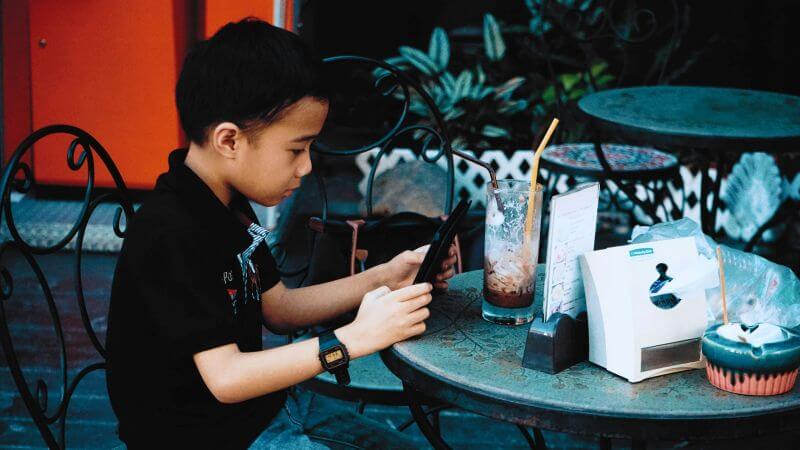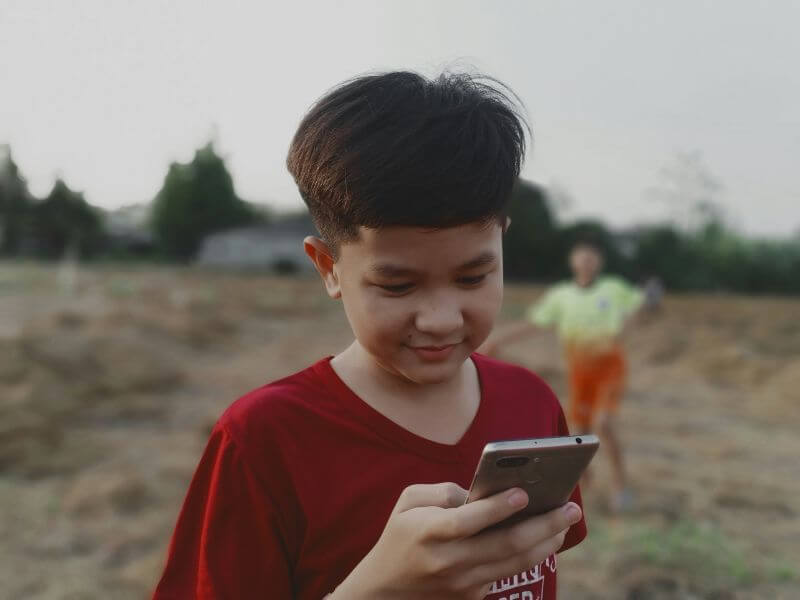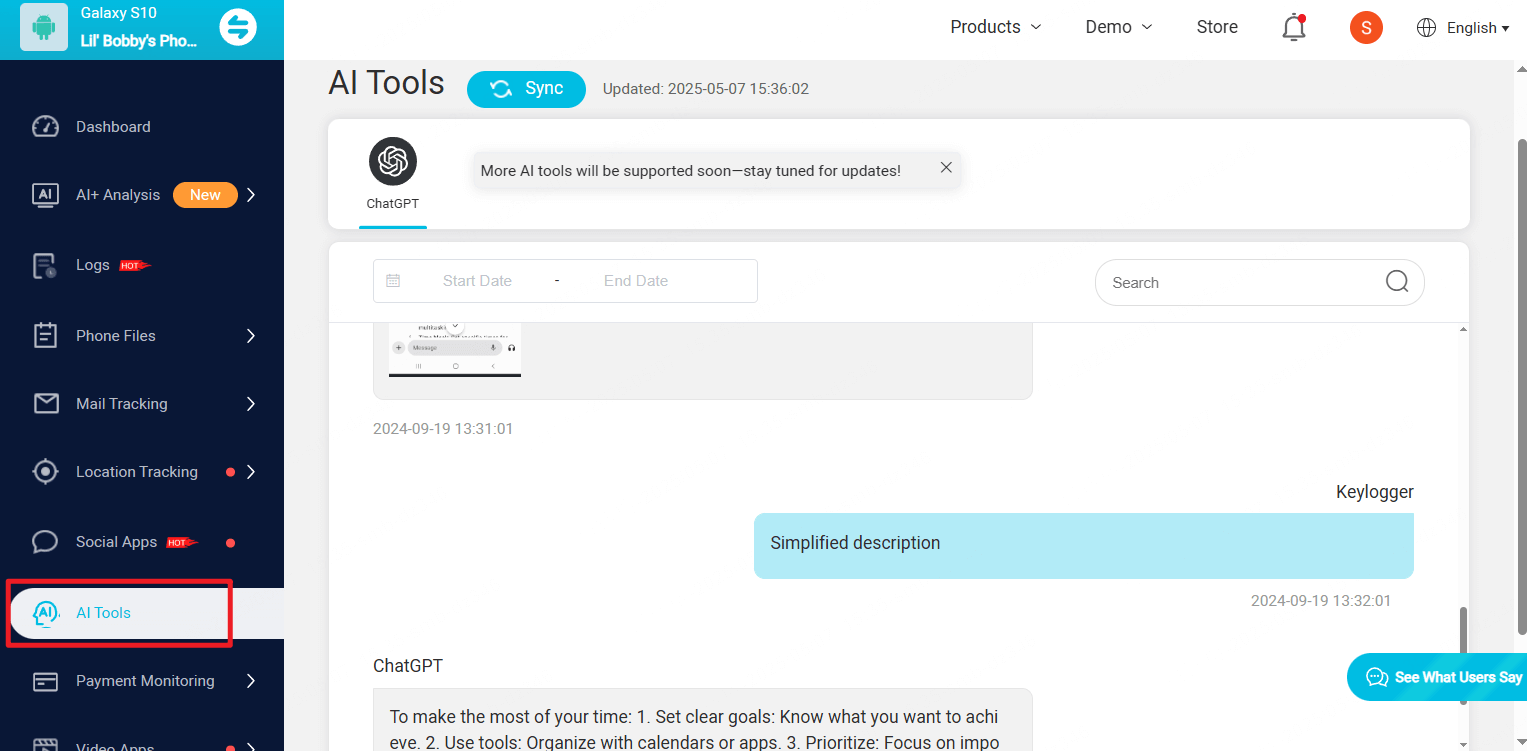ClevGuard Support: Monitor Devices with Others' Permission.
Whether you like it or not, Artificial Intelligence (AI) has blended into everyone’s lives, including kids. From interactive toys and favorite learning apps to voice assistants like Siri and Alexa, kids interact with AI without knowing about it. While these open up new ways for children to learn and play, parents ask: Is AI good for kids? The answer is both yes and no. Alongside the benefits, AI poses many risks to a child.

Table of Contents
This comprehensive guide details the good and bad of using AI with examples. It might help you understand how to keep your kids safe while they reap the potential benefits of AI.
Part 1. Is AI Good for Kids?
Yes, AI can be a powerful tool that can support learning, foster creativity, and motivate kids in new ways. However, it brings along certain risks you must be aware of. From privacy concerns to potential over-reliance on technology, there are many reasons why you want your kids to limit their use of AI.
Part 2. Positive Effect of AI on Kids
If used responsibly, AI can be a blessing for children. It can teach essential skills, encourage creativity, and make learning more accessible and engaging. By exposing children to AI at an early age, you’re raising a generation of thinkers, one that is technologically advanced, aware, and innovative.
1. Personalized Learning
AI is revolutionizing education so that most children prefer it over traditional learning. In fact, according to a Forbes survey, around 74% agreed with this, while only 14% expressed disappointment.
AI provides children with prompt access to information, adapts to their specific learning needs, and allows them to learn quickly. It is invaluable for people with particular learning needs or who struggle with traditional learning methods.
AI also evolves and adjusts the learning curve and pace to align them with individual needs. It not only keeps a child engaged but potentially fosters a genuine sense of passion for learning.
2. Enhanced Creativity
Today, many creativity tools use AI. Examples include storytellers, image generators, and music and video creators. Kids can use these tools to turn their vision into reality, but they must be creative with their prompts to generate something unique every time.
Besides, tools like Replika, Anima, and character.ai are good for kids. These tools foster creative expression and help a child gain social skills. They can use the tools to create their figures and invent stories. Meanwhile, they can also engage with the characters to learn to be nice to others and talk well.
3. Develop Problem-Solving Skills

Many AI tools come layered with scenarios and puzzles that require a blend of logical reasoning and creativity. For example, programming a robot to navigate a maze requires more than just writing code. The child must critically analyze the path, predict obstacles, and iterate solutions accordingly. Every error or misstep requires refining the approach, and continuously using them promotes critical thinking and persistence.
4. Motivate Kids
AI can be interactive and fun for kids, providing new ways to explore and enjoy the world. For some, these experiences open new doors of opportunity, enhance academic performance, and help tackle the challenges of adult life.
For example, platforms like Kahoot! and BrainPOP leverage AI to create games and interactive quizzes that respond to inputs. The difficulty increases as the child progresses through the game, keeping them motivated and involved.
Part 3. Negative Side of AI for Kids
AI is good for kids in many ways, but there are also some risks. These include privacy breaches, exposure to inappropriate content, over-reliance on technology, and more.
Privacy Risks
Many AI tools, such as smart toys, apps, and virtual assistants, collect users' personal information and track what they say or do. It can be concerning when it comes to your kids. For example, according to research by the University of Basel, smart toys like Moorebot, Edurino, Osmo, and others were found to record the kids’ conversations and activities. It raises concerns about how data is stored and used.
Spread Hate and Bias
As AI collects data from the internet and learns accordingly, it often shares the same prejudices that threaten to divide and alienate people. Recent research by Bloomberg reveals that AI takes racial and gender disparities to extremes, worse than what you see in the real world. Adults must understand what their kids do online and how it might reinforce negative beliefs.
Impacts Emotional Development
Interacting with AI, especially smart toys and virtual assistants, can reduce a child's time building social skills. Also, interacting with AI chatbots might seclude a child from the outside world and impact them emotionally. The New York Times in Orlando, Fla., reported a similar incident where a boy named Sewell spent 14 months talking to a Game of Thrones-themed chatbot on Character.ai and ultimately shot himself.
This raises the question: Are apps like character.ai good for kids? The answer is mostly yes, as they allow children to be creative. However, parents must monitor their children's online activities and changing behaviors over time to keep them safe.

While, a comprehensive parental control app like KidsGuard Pro can be helpful in that respect. With KidsGuard Pro, you can remotely track your kids’ online activities and location and even monitor social media and messaging apps. You can also block any AI apps if needed.
AI can be used for Bullying and Fraud
Generative AI can create false or distorted images of a child, which are then used to attack or shame them. Voice cloning or Deepfakes facilitate extortion, imposter scams, and financial fraud. A recent criminal case involving AI emerged from Maryland High School, where police say a principal was framed by a fake recording of his voice. It’s thereby crucial for parents to monitor their kids’ online activities using tools like KidsGuard Pro and ensure they are safe.
FAQs about AI Safety for Kids
Can children under 13 use AI?
While AI tools offer educational and learning benefits, most platforms, like ChatGPT, require users to be over 13 years old. Some tools even require parental controls and stricter age restrictions.
Is character.ai safe for kids?
No, character.ai might contain inappropriate content unsuitable for children under 16. The AI also made headlines for the wrong reasons and raised multiple safety concerns.
What is the minimum age for AI?
There isn’t a single, universally accepted minimum age for using AI. Many platforms keep 13 years old as a baseline. However, a child under 16 shouldn’t be allowed to access AI.
How can AI help children?
AI benefits children by offering personalized learning experiences, developing essential skills, and fostering creativity. It also motivates children to engage in specific tasks.
Is AI good or bad for children?
AI is good or bad for children, depending on how they use it. On one hand, it provides personalized learning experiences and boosts creativity. On the other hand, it poses dangers like privacy breaches, spreading hate, and bullying.
Conclusion
Artificial Intelligence improves how children interact with technology, providing a personalized learning experience and boosting their creativity and social skills. However, it also poses privacy, cyberbullying, and other risks. So, whether AI is good for kids or not depends on its responsible use.
Parents must monitor their kids' searches and actions using AI. For that, a comprehensive tool like KidsGuard Pro can be handy. It provides a real-time view of the target device and blocks inappropriate or harmful apps.



